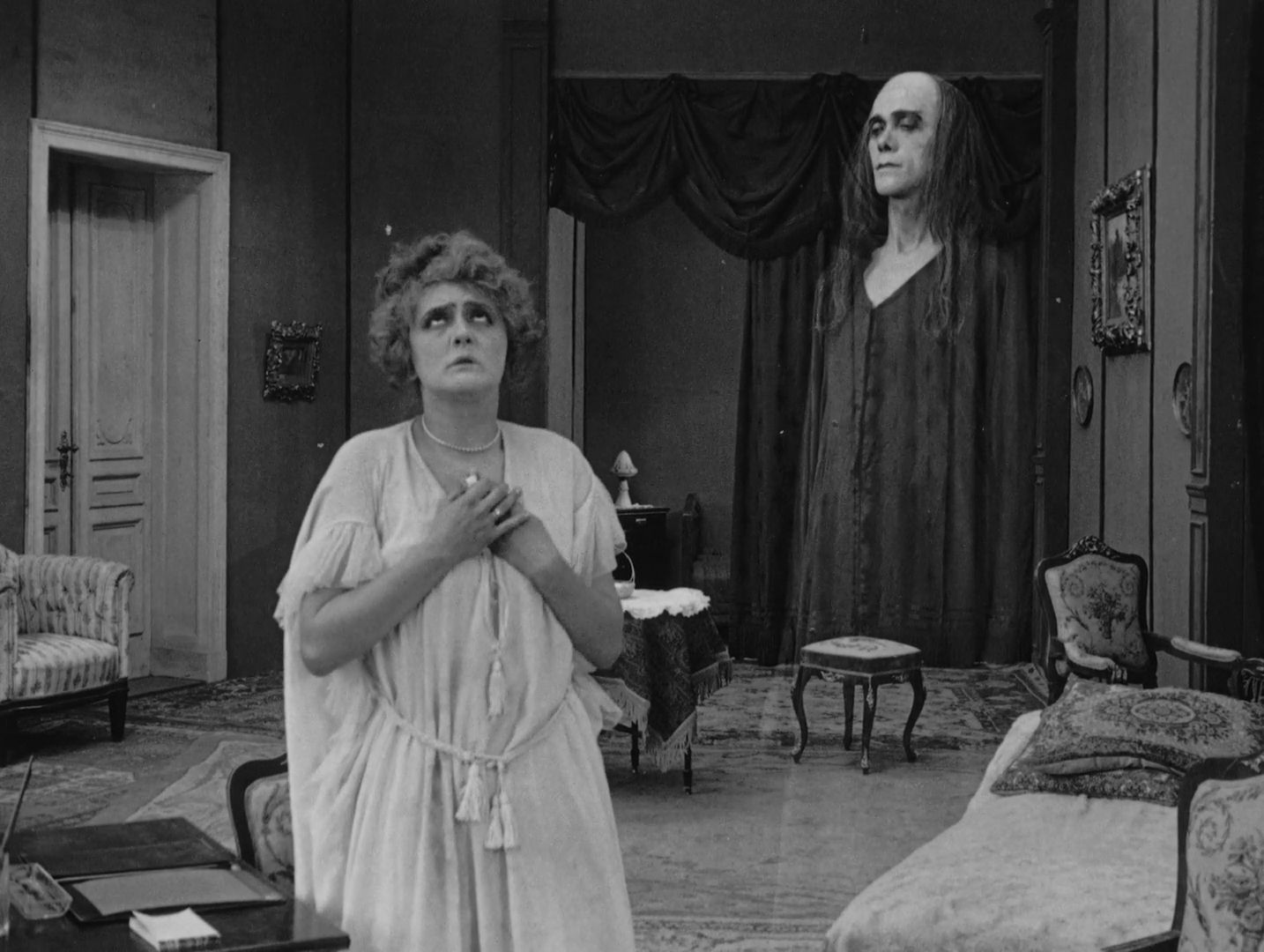Fritz on Fridays: Hilde Warren and Death
The classic Langian game theory with fate expresses itself through Weimar-era anxieties about corrupted blood.

On the first Friday of every month, this column by critic Joshua Polanski will feature a short review or essay on a film directed by Fritz Lang (1890-1976), the great Austrian “Master of Darkness.” Occasionally (but not too occasionally), Fritz on Fridays will also feature mid-month interviews, side topics and conversations with relevant critics, scholars and filmmakers about Lang’s influence and filmography.
Resting in a hospital bed in Vienna in his late 20s after being injured in the First World War, Fritz Lang penned the first scenarios of his illustrious career. Some of those have been lost to history. Maybe one day someone will find missing scripts or even reels in a salt mine in Romania or the basement of an old archive in Chile, but they must be considered missing for now. At least one of them, Die Hochzeit im Excentricclub (1917), has a contested connection to Lang. His name wasn’t attributed in the credits. The Friedrich Wilhelm Murnau Foundation’s (Friedrich Wilhelm Murnau Stiftung) website also lacks his citation. The German title translates to Wedding in the Eccentric Club, but the film is so unregarded and forgotten that most sources still use the original title. As far as my research can dig up (mind you, I don’t speak or read German), every attribution of Excentricclub to Lang depends on the famous director’s own word. And if there is one thing one should know about Fritz Lang, it is that lying might have been the only thing he did better than making movies.
Excentricclub was just another unremarkable episode in the Joe Deebs detective series that expanded to some 30-plus titles when things were all said and done. Lang lied often and well, but his lies usually made stories better. His imagined recollection of a meeting with Joseph Goebbels, the Reich Minister of Propaganda, where he claims Goebbels offered him a role in the Nazi party as the head of film and that he immediately fled the country might be the most (in)famous example. (The story Lang told is just that, a story, and the many contemporary publications that replicate his fable without complications blindly trust his word and reveal their hands for knowing nothing of Lang.) Lying about a Joe Deebs movie adds nothing to Lang’s mythical aura. It’s very well possible he did have something to do with the original scenario for Die Hochzeit im Excentricclub.
Continue reading at the Midwest Film Journal.